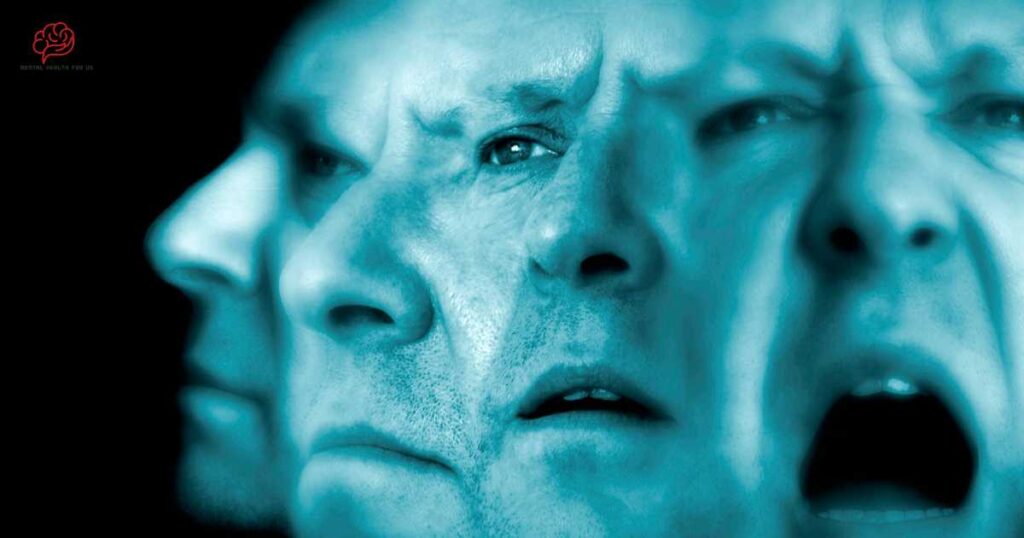Introduction
What Can Happen if Schizophrenia Goes Untreated? Untreated schizophrenia can severely impact a person’s health. Addressing this condition and seeking treatment is crucial to minimizing its potentially devastating effects on mental, physical, social, and economic well-being.
Untreated schizophrenia can cause paranoia, hallucinations, and disorganized speech. These symptoms can impair relationships, work, and daily life.
Untreated schizophrenia can harm physical and mental health. Schizophrenia patients may neglect medical care, eat poorly, and lack exercise. This can increase the risk of obesity, diabetes, cardiovascular disease, and a shorter lifespan.
What Can Happen if Schizophrenia Goes Untreated?
Schizophrenia can severely impact a person’s life if left untreated. The following section will discuss the effects of untreated schizophrenia on mental, physical, social, and quality of life.
Impacts on Mental Health
Untreated schizophrenia can cause certain mental health conditions. Without treatment, schizophrenia symptoms like hallucinations, delusions, disorganized thinking, and cognitive difficulties can worsen. Depression, anxiety, and obsessive-compulsive disorder can result from this deterioration.
Untreated schizophrenia and comorbid mental health disorders can severely impair quality of life. Due to stigma and fear, untreated schizophrenia can cause social isolation. Social isolation, combined with schizophrenia symptoms like lack of motivation and emotional expression, can worsen mental health.
Untreated schizophrenia also increases suicidal risk. Schizophrenia increases suicide risk, according to research. Lack of schizophrenia treatment can worsen symptoms and increase self-harm and suicide attempts.
Schizophrenic patients need antipsychotic medication and therapy from mental health professionals. Early intervention and ongoing support can improve symptom management, reduce the risk of comorbid mental health disorders, and boost mental health.
The economic and social effects of untreated schizophrenia should also be considered. Untreated schizophrenia makes it hard to find and keep a job, putting them at risk of financial hardship and social welfare dependency. Schizophrenia stigma can cause social exclusion, isolation, and lower quality of life.
For schizophrenia patients, treatment is essential. Without treatment, schizophrenia can harm mental, physical, social, and economic health. Individuals and their support networks must seek professional help and explore treatment options for a better long-term outcome. This article aims to explore what can happen if schizophrenia goes untreated.
Physical Health Consequences
Untreated schizophrenia does not only harm mental health but also physical health. The disorder can cause brain and physical health issues.
Schizophrenia patients have higher rates of certain medical conditions. They have a higher risk of heart disease, diabetes, and metabolic syndrome. These conditions are caused by a sedentary lifestyle, poor nutrition, antipsychotic side effects, and lack of healthcare.
Untreated schizophrenia can cause brain structural changes, according to research. Gray matter loss in certain brain regions is linked to the disorder. Gray matter loss can impair cognition and emotional regulation, worsening overall well-being.
In addition, untreated schizophrenia can lower life expectancy and increase liver disease risk. Studies show that schizophrenia patients have a lower life expectancy than the general population due to medical comorbidities and lifestyle factors.
Economic and Social Impacts
Untreated schizophrenia can have serious economic and social consequences. Schizophrenia often makes it hard to form meaningful relationships and socialize, which can lead to social withdrawal. Isolation can reduce support networks and mental health. Impaired judgment and difficulty recognizing dangerous situations make untreated schizophrenia patients more vulnerable to violent crimes.
Untreated schizophrenia also threatens finances. The disorder can impair work and stability, causing financial instability and dependence. This can lead to homelessness as schizophrenia patients struggle to afford housing and necessities.
Other effects of untreated schizophrenia include substance abuse. Drugs and alcohol may help some people cope with the disorder’s symptoms. Substance abuse can worsen schizophrenia and prevent treatment.
Which symptoms tend to get worse in untreated schizophrenia?
Untreated schizophrenia symptoms can worsen over time. Anger and violence may worsen. Untreated schizophrenia can cause frequent outbursts of anger or aggression.
Untreated schizophrenia causes persistent symptoms. Without treatment, schizophrenia’s hallucinations, delusions, and disorganized thoughts can worsen. An individual’s daily functioning can be greatly impaired.
When schizophrenia goes untreated, suicidal thoughts increase. Stress from the illness, social isolation, and trouble managing thoughts can increase the risk of self-harm or suicide.
Untreated schizophrenia can also cause depression or bipolar disorder. The illness’s unpredictability and distress can worsen these co-occurring disorders and moods.
Untreated schizophrenia can cause substance abuse. Schizophrenia patients may self-medicate or use alcohol to relieve symptoms. This can worsen their mental health and well-being.
Overall, untreated psychosis can worsen anger, violent outbursts, persistent symptoms, suicidal thoughts, mood disorders, and substance use disorder. Early intervention and treatment can help schizophrenia patients manage these symptoms and improve their quality of life.
Conclusion
This article discussed what can happen if schizophrenia goes untreated. We found that untreated schizophrenia can have serious effects on patients, their families, and communities. Without treatment and support, symptoms can worsen, causing functional impairment, social isolation, and relapse.
Untreated schizophrenia can cause legal, financial, and physical problems, as well as self-harm. Understanding that schizophrenia is treatable and that early intervention improves outcomes is crucial. Adequate medical and psychological care and ongoing support are necessary to mitigate the negative effects of this serious mental disorder and help people live more fulfilling lives.
FAQs
Can a person live with schizophrenia without medication?
Some schizophrenic patients can live without medication, but the results vary. Schizophrenia treatment often includes medication, therapy, and support. Mental health professionals should discuss and monitor whether some people can manage their symptoms and live functionally without medication.
Has anyone recovered from schizophrenia?
Yes, medication, therapy, and support have helped some schizophrenia patients recover and they fully recovered. However, schizophrenia recovery is complicated and varies from patient to patient.
How serious is schizophrenia?
Schizophrenia is a serious mental disorder that causes hallucinations, delusions, disorganized thinking, and altered reality. It can affect a person’s thoughts, emotions, and behavior, causing huge problems in daily life and relationships.







